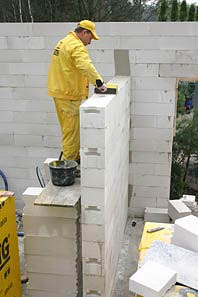
Construction will slightly increase or stagnate this year
 |
"In 2020, stagnation or possibly slight growth should be expected. This will be supported by the need for faster utilization of European subsidies. The current programming period ends next year," said analyst Lukáš Kovanda from Czech Fund. In utilizing European subsidies, the so-called N+3 rule is applied. This means that states must utilize the subsidies allocated to them in a given year within three years. The current programming period from 2014 to 2020 will thus effectively end only in 2023.
According to Kovanda, the growth dynamics of Czech construction is gradually slowing with the usual lag behind the rest of the economy. "The sector is losing growth dynamics not only due to the overall slowdown in the economy but also due to its own problems. These primarily include a lack of suitable workforce and long delivery times, which make construction work more expensive," Kovanda added. According to data from the Czech Statistical Office, year-on-year growth of the Czech economy in the third quarter slowed to 2.5 percent from 2.7 percent in the second quarter.
"Construction production should also increase this year. The state of the real estate market is still poor, and there is strong demand for new properties. The same is true in civil engineering. Therefore, Czech builders should take advantage of this demand and turn it into growth in construction," said BH Securities analyst Štěpán Křeček.
According to analysts, insufficient availability of apartments is one of the reasons for the rise in their prices. According to the latest data from consulting company Deloitte, selling prices of apartments in Prague and regional cities increased year-on-year at the end of the half-year by an average of ten percent to 60,700 crowns per square meter. Prague was the most expensive (84,200 CZK), while Ústí nad Labem was the cheapest (17,000 CZK). Over the past four years, apartment prices have increased by nearly half. New apartments in Prague have almost doubled in price during this period.
"I see public investment as a critical moment this year. Whether enough money can be found in the tight budget for investments that our deteriorating and lagging infrastructure undoubtedly deserves. Especially during a time when the economy is slowing, the state and the entire public sector can be a suitable supporter of economic growth," stated ČSOB analyst Petr Dufek.
Analyst Petr Bartoň from Natland considers the completely clogged system of issuing building permits as the main brake in the industry. "Investors want to build, but regulatory authorities do not allow them due to their delays and often sheer unwillingness to make any decisions," Bartoň noted. The government promises significant acceleration and simplification of building permitting in the upcoming construction law, which is planned to take effect from 2021 according to its plans. However, the regulation has many critics. Among the most frequent criticisms is that it favors developers and does not protect public interests. According to some opponents, it is unconstitutional. Many experts also point to the "too fast to frantic pace of discussion."
The English translation is powered by AI tool. Switch to Czech to view the original text source.
0 comments
add comment
Related articles
0
07.05.2021 | Construction will ease the decline this year, the problem is the lack of built apartments
0
01.03.2021 | The volume of construction contracts at the end of 2020 was the highest since 2008
0
28.09.2020 | Czech construction improved its position by four places among EU countries
0
02.07.2020 | Czech construction improved by seven places among EU countries
0
26.12.2019 | Czech construction will grow for the third consecutive year this year









